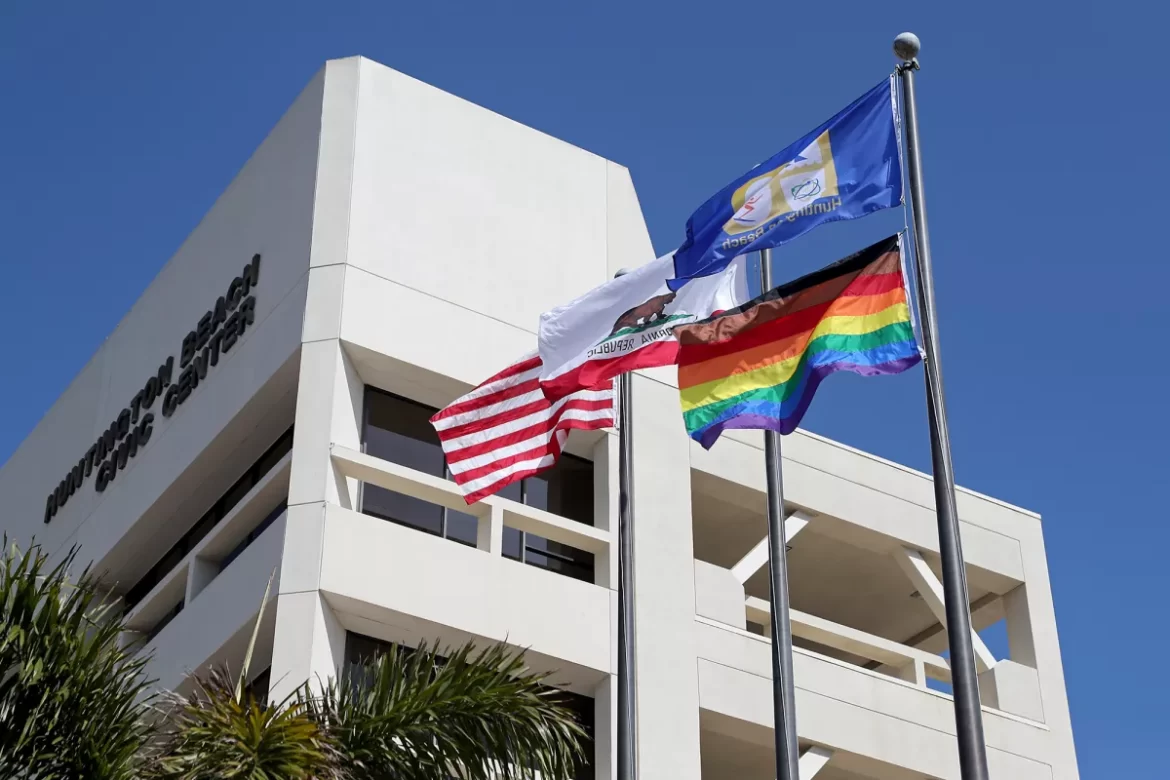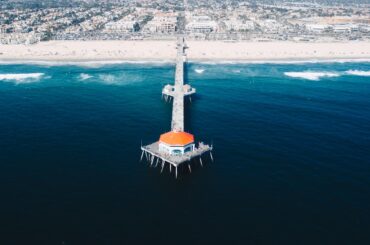The Huntington Beach City Council recently voted against flying the LGBTQ Pride flag over City Hall, a decision that has sparked heated debates and divided opinions. This controversial move overturns a previous ruling from 2021 that allowed the flag to be flown for six weeks every spring.
The Decision: A Slim Majority
After two hours of public debate, the council voted 4 to 3 in favor of a motion put forth by newly elected council member Pat Burns. The motion restricts the types of flags that can be flown on public property, effectively banning the LGBTQ Pride flag.
The Flags That Made the Cut
According to the new ordinance, only flags representing the United States, the state of California, Orange County, the city of Huntington Beach, the POW/MIA flag, and the six branches of the U.S. armed forces are permitted. Notably absent from this list is the LGBTQ Pride flag.
Public Opinion: A House Divided
The council meeting saw more than 40 people speak, their opinions ranging from supportive laughter to outright scorn. Activist Alex Mohajer, president of the Stonewall Democratic Club, argued that the Pride flag “celebrates what makes us different,” urging the council not to divide the community.
The Opposition: Voices of Reason?
Council member Dan Kalmick, who voted against the proposal, stated that the motion was clearly aimed at a group that has been marginalized throughout history. Connie Boardman, a former mayor, pointed out that the decision could even prevent the city from flying the Olympic flag when the games come to Los Angeles in 2028.
The Justification: Avoiding Polarization
Pat Burns defended the decision, stating that the city should avoid acts that could be interpreted as divisive. However, critics argue that the move itself is inherently divisive and sends a negative message to the LGBTQ+ community.
The Aftermath: A Community in Limbo
The decision has left many wondering what it signifies for the city’s progress on issues of diversity and inclusion. Natalie Moser, another council member who voted against the proposal, expressed concern that the decision halts the city’s forward momentum.
The Community Reacts
Kathy Carrick, a resident of Huntington Beach, declared, “Huntington Beach is welcoming.” It is ludicrous to think that we need a flag to declare that. On the other hand, one woman, who wished to remain anonymous but identified herself as a Christian, referred to the pride banner as divisive. In response, a woman in the audience shouted, “Only if you’re homophobic.”
Implications for the Future
This decision by the Huntington Beach City Council has far-reaching implications, not just for the LGBTQ+ community but also for the broader conversation around diversity, inclusion, and public representation. It serves as a reminder that the fight for equality is far from over.



